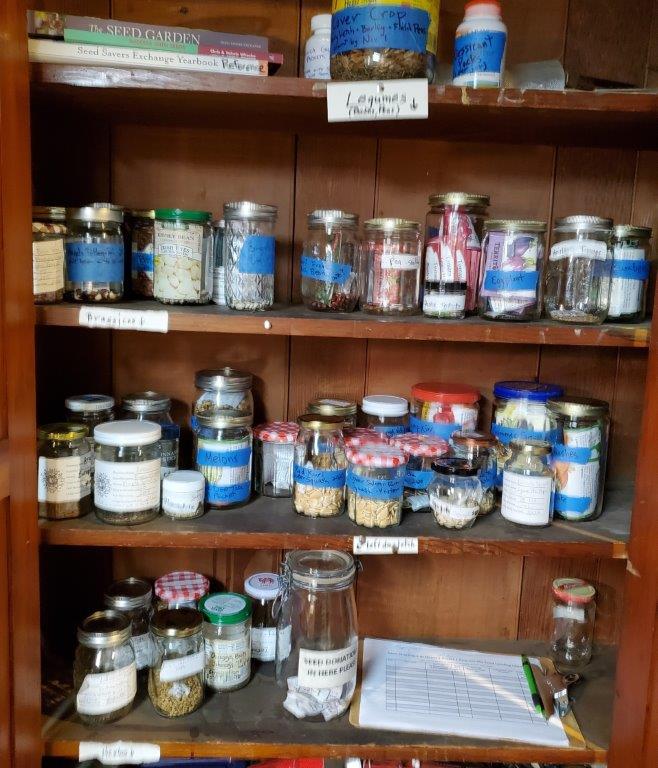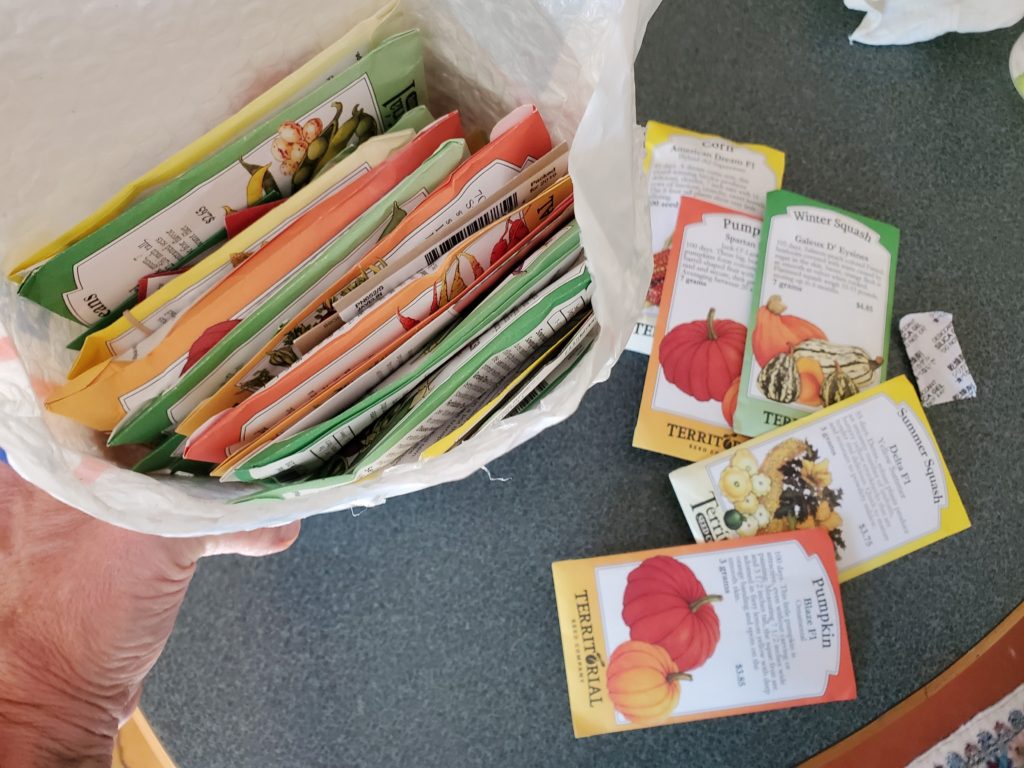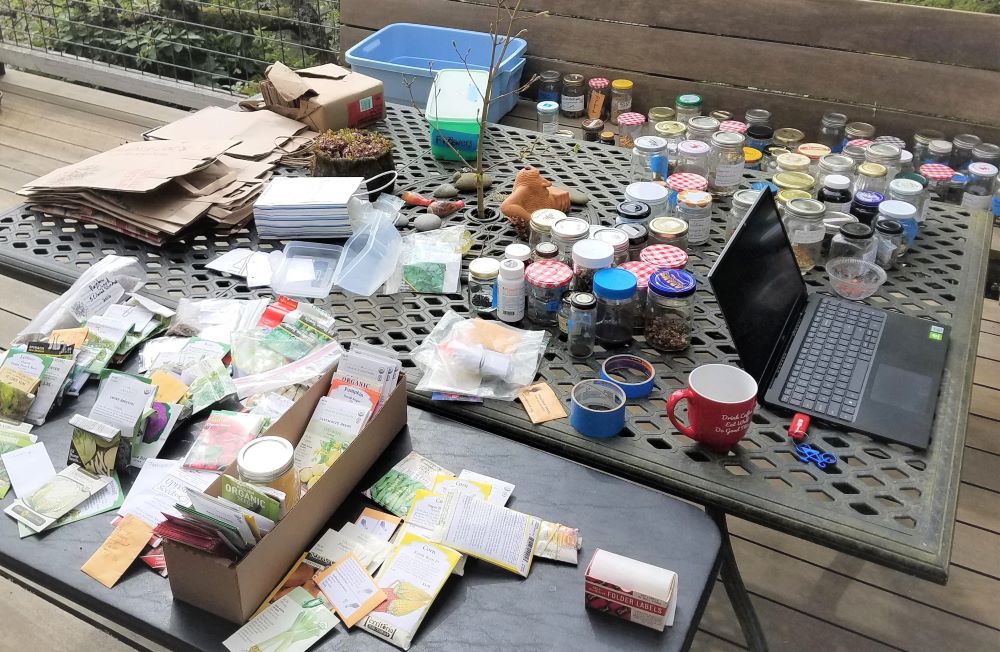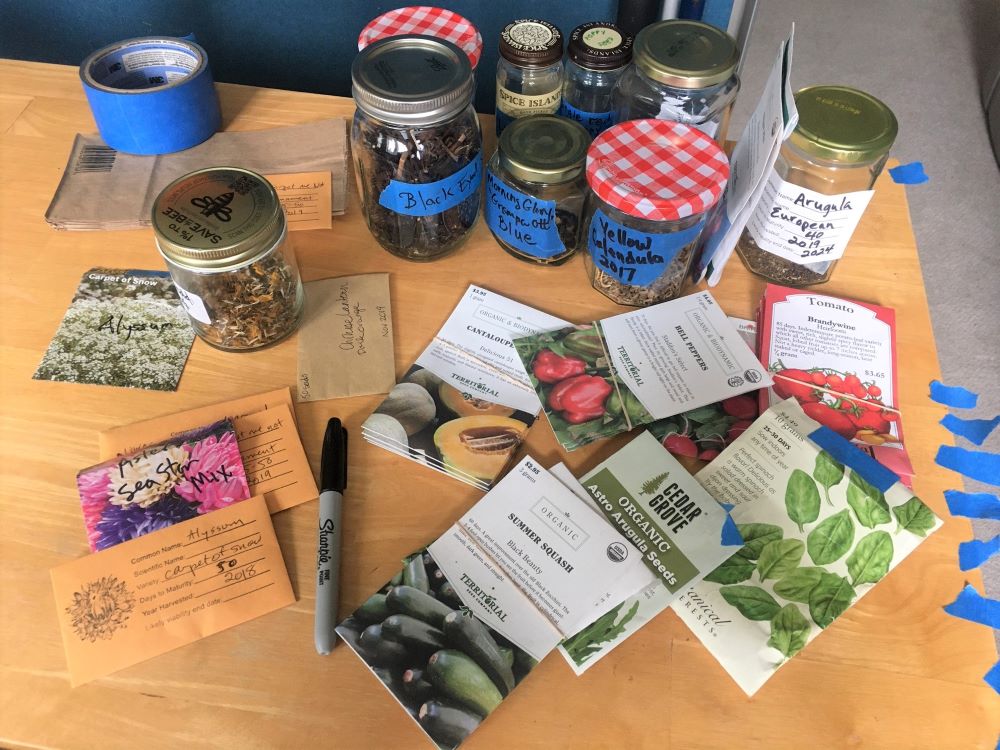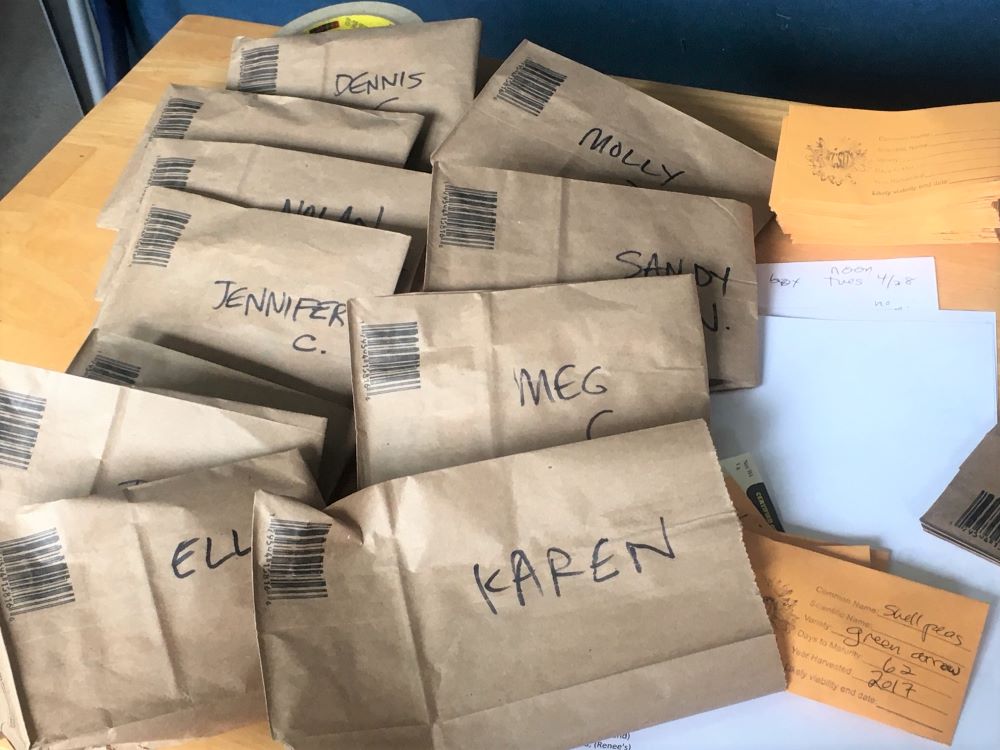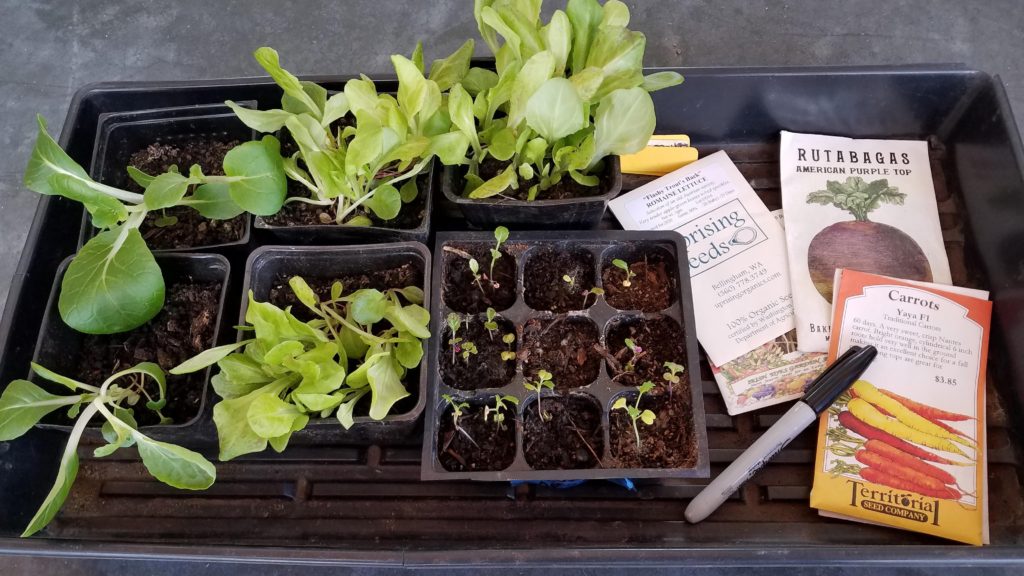With the current craze to start or revive an edible garden, seed companies have been hit hard. They need to keep their workers safe while filling mountains of orders. Some have stopped taking orders temporarily, or are only shipping to commercial farmers. Many report turnaround times of two weeks to ship an order.
Still, these small businesses deserve our support. Seeds are alive and need to be planted while fresh. So we plead with our supporters to please patronize our bioregional seed companies. Check multiple companies to see who is shipping now. Be patient. Thank them for their work.
Here is a list of seed companies. Those with an asterisk * are outside of the Washington-Oregon region. (Please let us know if we’ve missed any that you think we should include.)
Adaptive Seeds www.adaptiveseeds.com
Baker Creek Heirloom Seeds https://www.rareseeds.com/
Deep Harvest Seeds www.deepharvestfarm.com
Fedco Seeds https://www.fedcoseeds.com/ *
Filaree Garlic Farm www.filareefarm.com
Horizon Herbs www.horizonherbs.com
Irish Eyes Garden Seeds www.irisheyesgardenseeds.com
Johnny’s Selected Seeds https://www.johnnyseeds.com/ *
Kitazawa Seed Company (CA) www.kitazawaseed.com *
New Dimension Seed www.newdimensionseed.com
Nichols Garden Nursery www.nicholsgardennursery.com
Osborne Seed Company www.osborneseed.com
Peace Seeds www.peaceseedslive.blogspot.com
Peaceful Valley Farm & Garden Supply (CA) www.groworganic.com *
Renee’s Garden Seeds https://www.reneesgarden.com/ *
Resilient Seeds https://www.resilientseeds.com/
Seed Savers Exchange (IA) www.seedsavers.org *
Seeds Trust/High Altitude Seeds (CO) www.seedstrust.com *
Seattle Seed Company www.seattleseed.com
Siskiyou Seeds www.siskiyouseeds.com
Snake River Seed Cooperative (ID) www.snakeriverseeds.com *
Sustainable Seed Company www.sustainableseedco.com
Territorial Seed Company www.territorialseed.com
Uprising Seeds www.uprisingorganics.com
Victory Seed Company www.victoryseeds.com
Wild Garden Seed www.wildgardenseed.com
*beyond Washington or Oregon
